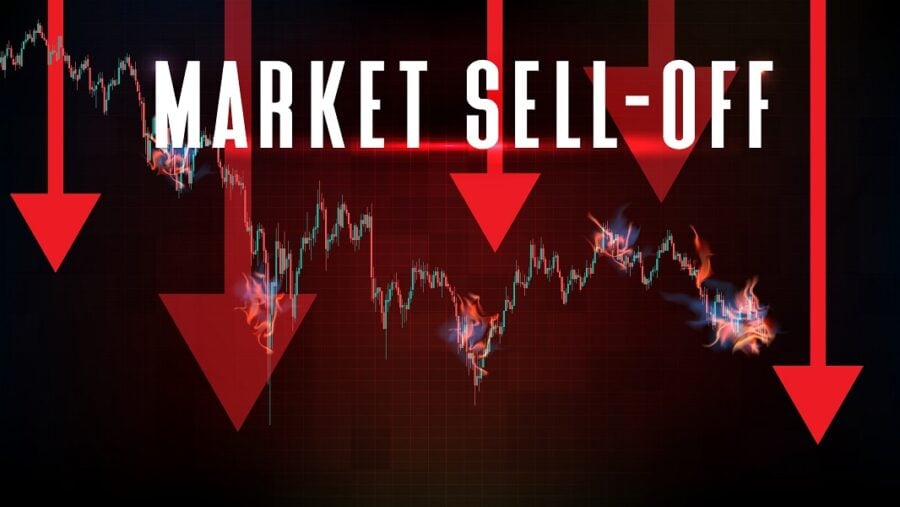A central question that comes to the minds of observers today is the performance of technology stocks, which are facing their worst start in 14 years.
What is behind the massive selling that markets recently recorded?
The Nasdaq index, which is considered a basic benchmark for American technology stocks, is experiencing the worst days it faced in years, and its losses are estimated at trillions of dollars in a very short span.
The victims are many. They include Nvidia, Tesla, Apple, and Meta, in addition to Tesla and others. And the list goes on.
A combination of reasons led to this massive unloading of technology stocks, including slowing economic growth in the US, tightening monetary policy from the US Federal Reserve, high inflation, and high-interest rates.
Many Wall Street investors blame the Federal Reserve and bond yields for the resulting market dynamics and the dramatic decline in technology stocks.
Federal Reserve’s decisions to normalize monetary policy
The minutes of the December meeting of the Federal Open Market Committee at the Federal Reserve indicated that the latter is heading to raise interest rates earlier and faster than expected, with tighter monetary policy measures in the horizon.
Among its strict measures aimed at containing the high rates of inflation reaching 7 percent at the end of last year, the Federal Reserve is working to reduce its balance sheet. The Fed has already started reducing its monthly bond purchases.
Its balance sheet is inflated to about 9 trillion dollars as a result of the quantitative easing (QE) programs adopted to confront the repercussions of COVID-19 on the economy. The QE essentially helped add liquidity to markets.
Bond yields vs technology stocks
On the other hand, the Fed’s next expected moves bode well for bond yields.
Higher interest rates, less liquidity in the markets, Fed’s cutting down its purchases, and rising bond yields are all bad news for tech stocks.
High returns, in particular, tend to discount the present value of future cash flows. The valuations of many technology stocks are based on the notion of future earnings.
The technology sector in reverse mode
The technology sector had been the biggest winner in the Corona era. However today, it appears that there will be a reversal towards other sectors, which explains the Federal Reserve’s hint of a “healthy” economy that ensures a faster normalization of its monetary policy, meaning returning it to pre-crisis conditions.
In a clearer sense, the tailwinds that helped push tech stocks higher last year, have changed course today and are now headwinds for further growth.
This means that highly-rated technical stocks will be particularly vulnerable to the ongoing normalization efforts, which will translate into a massive rush to exit in most of the quantitative easing categories.
All of this begs the question: What should tech investors do next?
It is a matter of waiting and watching, as observers will see a limited period of time during which technology catches its breath before it returns to be a stable source of economic and market power.
Economic and technology stocks predictions
Analysts refrain from making bad economic predictions, as current market action suggests. They consider that despite the slowdown in the rate of economic growth, expectations indicate a real growth of the gross domestic product (GDP) in the US growing to 3.9 percent this year and 3.5 percent in 2023.
Also, while inflation will remain high over the next few months, they expect it will begin to decline gradually in the second half of this year and continue to decline in 2023.
“As interest rates are due to rise, we must remember that they are coming off levels that were not far from their historical lows,” they say.
Finally, it is true that investors have massively sold off so far this year, but a number of stocks in the technology sector have been pushed down a lot during the market turmoil…and they may present good opportunities for investors today. Will the sector regain its luster soon?
It usually always does. It’s a wait-and-see situation.








